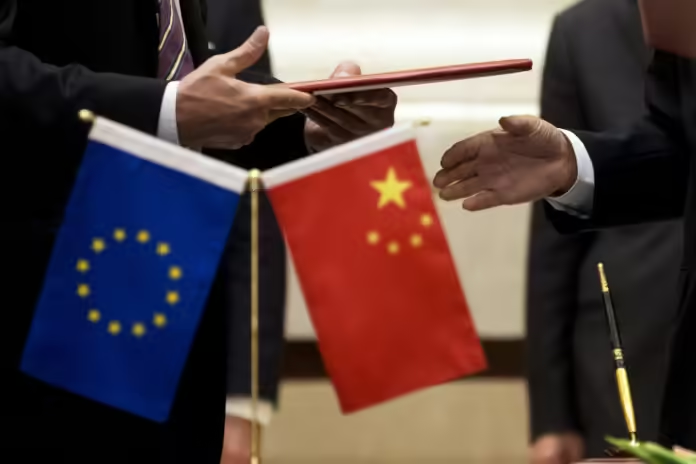The European Union and China yesterday launched the first discussions under the new Cross-Border Data Flow Communication Mechanism.
Sabine Weyand, director-general of DG Trade at the European Commission, met online yesterday with Vice-Minister Wang Jingtao of the Cyberspace Administration of China to formally launch the new mechanism.
The mechanism will focus on practical solutions to address problems European companies face in China regarding cross-border flows of non-personal data.
This is a deliverable of the political agreement reached in 2023 between European Commission Vice-President Věra Jourová and Chinese Vice-Premier Zhang Guoqing at the EU-China High-Level Digital Dialogue, as well as at the EU-China High-Level Economic and Trade Dialogue between Commission Executive Vice-President Valdis Dombrovskis and Chinese Vice-Premier He Lifeng.
It aims at finding ways to facilitate cross-border transfers of non-personal data for European businesses, as well as their compliance with Chinese data laws. This issue was also raised by Commission President Ursula von der Leyen and the president of the European Council, Charles Michel, in their December 2023 meeting with China’s president, Xi Jinping, followed by an exchange with China’s premier, Li Qiang, in the context of the last EU-China Summit.
At the inaugural formal meeting of the new mechanism – the first cooperation structure of its kind between the two sides – the EU expressed its objective of addressing concrete concerns raised by EU businesses in China regarding cross-border flows of non-personal data.
Data flows are essential to trade. A significant part of the EU-China foreign direct investment stock depends on companies’ ability to manage their data across borders. This is particularly relevant for sectors such as finance and insurance, pharma, automotive, and information and communication technology (ICT). Cross-border data flows are key for research & development activities, and essential for business to thrive.
In recent years, European businesses in China have faced increasing uncertainty and difficulties in exporting data from China. They have been specifically concerned about the systematic application of security approvals to exports of all ‘important data’, following the 2022 adoption of the law on Measures for Data Export Security Assessment. This concern has been further exacerbated by uncertainty as to what constitutes ‘important data’, as the concept has so far been only vaguely defined and applied in a far-reaching manner. Cross-border data transfer restrictions are also a major contributing factor to the declining confidence of European investors in China.
Further engagement is foreseen at expert and technical levels, with a view to reviewing progress at the political level at the next appropriate occasion.




